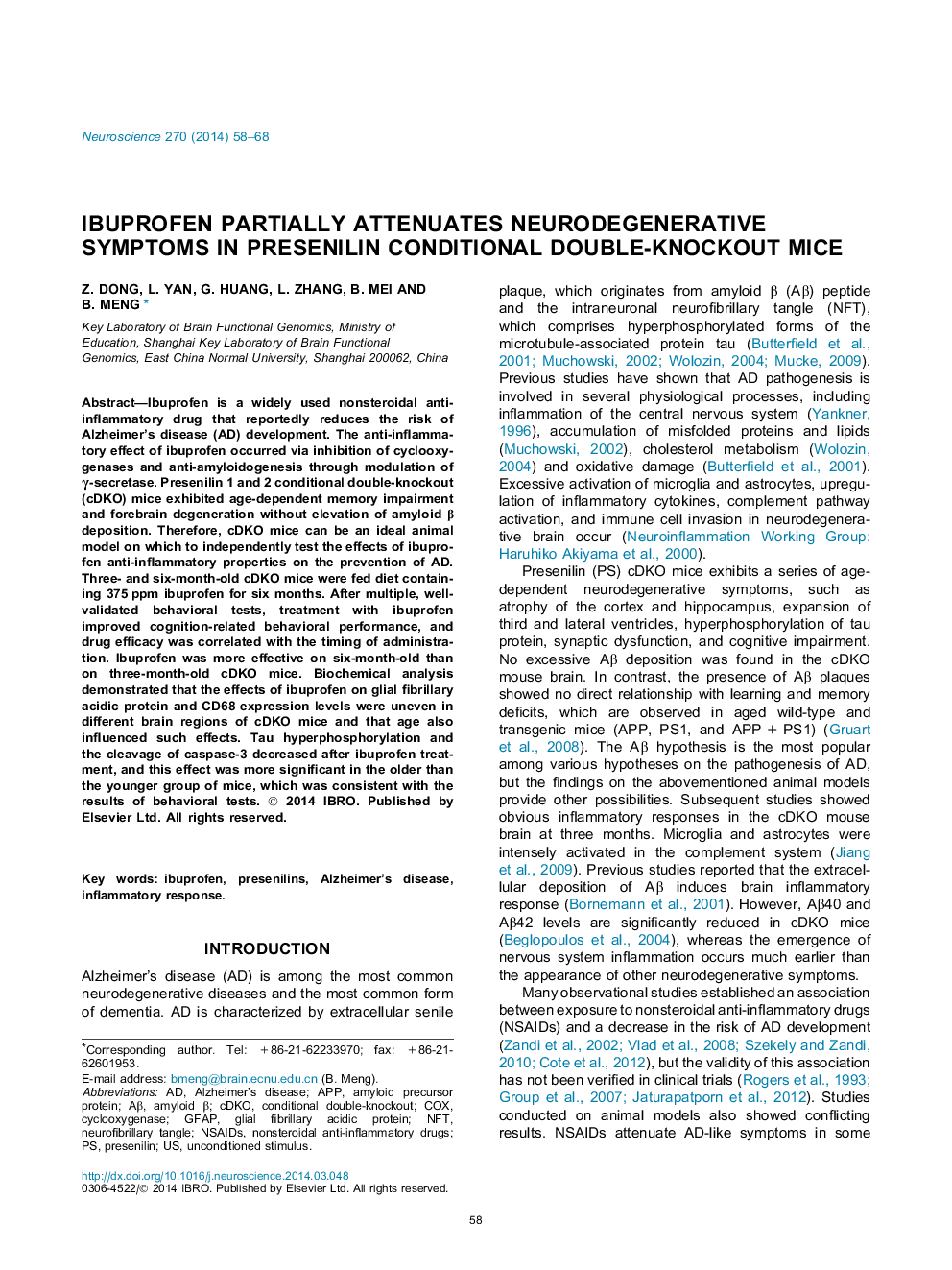| Article ID | Journal | Published Year | Pages | File Type |
|---|---|---|---|---|
| 4337595 | Neuroscience | 2014 | 11 Pages |
•Ibuprofen has barely any effect on emotional changes of cDKO mice, but improved their cognition-related performances.•Ibuprofen reduced GFAP and CD68 levels in cDKO mouse brain; pTau and cleaved caspase-3 were also significantly down regulated.•The efficacy of the drug depends on the timing of administration, more effective at a relatively late stage of cDKO mice.
Ibuprofen is a widely used nonsteroidal anti-inflammatory drug that reportedly reduces the risk of Alzheimer’s disease (AD) development. The anti-inflammatory effect of ibuprofen occurred via inhibition of cyclooxygenases and anti-amyloidogenesis through modulation of γ-secretase. Presenilin 1 and 2 conditional double-knockout (cDKO) mice exhibited age-dependent memory impairment and forebrain degeneration without elevation of amyloid β deposition. Therefore, cDKO mice can be an ideal animal model on which to independently test the effects of ibuprofen anti-inflammatory properties on the prevention of AD. Three- and six-month-old cDKO mice were fed diet containing 375 ppm ibuprofen for six months. After multiple, well-validated behavioral tests, treatment with ibuprofen improved cognition-related behavioral performance, and drug efficacy was correlated with the timing of administration. Ibuprofen was more effective on six-month-old than on three-month-old cDKO mice. Biochemical analysis demonstrated that the effects of ibuprofen on glial fibrillary acidic protein and CD68 expression levels were uneven in different brain regions of cDKO mice and that age also influenced such effects. Tau hyperphosphorylation and the cleavage of caspase-3 decreased after ibuprofen treatment, and this effect was more significant in the older than the younger group of mice, which was consistent with the results of behavioral tests.
